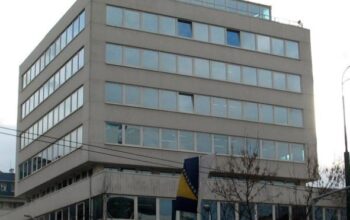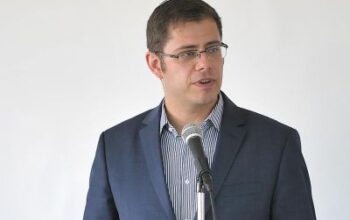As citizens across BiH begin the long, difficult task of recovering and rebuilding after the recent floods, the European Union’s Commissioner for International Cooperation, Humanitarian Aid and Crisis Response, Kristalina Georgieva, arrived for a visit to the affected region. Speaking to press in Belgrade on Wednesday, Commissioner Georgieva noted the increase in assistance from the EU and member states.
“The European Union has been scaling up its assistance continuously and supporting both [Serbia and BiH] during the peak of the emergency phase. Offers for assistance by Member States keep coming in and I am extremely grateful for this expression of European solidarity.”
“Serbia and Bosnia and Herzegovina will also need help to reconstruct damaged infrastructure and restore public services as well as to get people back into their homes. In this next phase of the relief effort we will also be there with them,” Commissioner Georgieva added.
Speaking in Sarajevo on Thursday, Commissioner Georgieva offered her sympathies to the people of BiH, and said that though there were scattered rescue efforts still ongoing, the situation had entered the “second phase” of relief efforts, and EU teams had turned their attention to meeting the needs of affected populations.
The most troubling problem today is the large number of animals in the water, dead animals in the water, and the mixing of water supplies with polluted water creating very serious health risks for populations in these areas.
We will increase the delivery of water purification units, water purification tablets, but also it may be necessary to do the spraying of the areas, because high temperatures also mean a lot of mosquitos and dangerous mosquito-transmitted diseases. And then we need driers for the buildings that have been flooded, we need generators where there is no electricity, we need clean water, mattresses, blankets for people that are evacuated. We will be funding the Red Cross/Red Crescent to do some of this.
The commissioner also noted that these efforts were made more difficult by the presence of thousands of land mines and other unexploded ordnance that has shifted position due to the floods.


